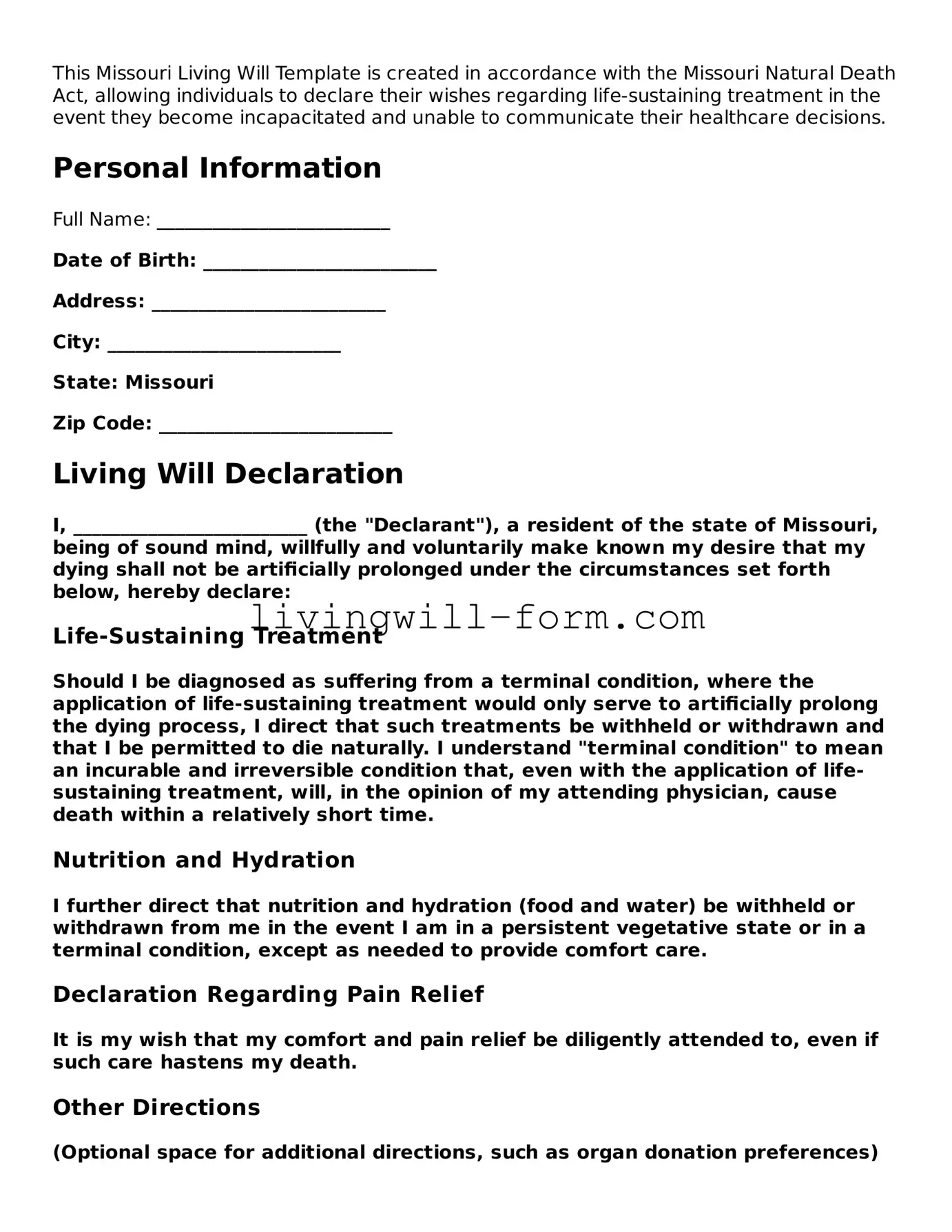This Missouri Living Will Template is created in accordance with the Missouri Natural Death Act, allowing individuals to declare their wishes regarding life-sustaining treatment in the event they become incapacitated and unable to communicate their healthcare decisions.
Personal Information
Full Name: _________________________
Date of Birth: _________________________
Address: _________________________
City: _________________________
State: Missouri
Zip Code: _________________________
Living Will Declaration
I, _________________________ (the "Declarant"), a resident of the state of Missouri, being of sound mind, willfully and voluntarily make known my desire that my dying shall not be artificially prolonged under the circumstances set forth below, hereby declare:
Life-Sustaining Treatment
Should I be diagnosed as suffering from a terminal condition, where the application of life-sustaining treatment would only serve to artificially prolong the dying process, I direct that such treatments be withheld or withdrawn and that I be permitted to die naturally. I understand "terminal condition" to mean an incurable and irreversible condition that, even with the application of life-sustaining treatment, will, in the opinion of my attending physician, cause death within a relatively short time.
Nutrition and Hydration
I further direct that nutrition and hydration (food and water) be withheld or withdrawn from me in the event I am in a persistent vegetative state or in a terminal condition, except as needed to provide comfort care.
Declaration Regarding Pain Relief
It is my wish that my comfort and pain relief be diligently attended to, even if such care hastens my death.
Other Directions
(Optional space for additional directions, such as organ donation preferences)
______________________________________________________________________________
______________________________________________________________________________
Designation of Health Care Surrogate
In the event I become incapable of making my own health care decisions, I designate the following individual as my Health Care Surrogate to make decisions regarding my health care treatment:
Name of Surrogate: _________________________
Relationship: _________________________
Address: _________________________
Phone Number: _________________________
In the event my primary surrogate is unable, unwilling, or unavailable to act in this capacity, I hereby appoint the following person as an alternate surrogate:
Name of Alternate Surrogate: _________________________
Relationship: _________________________
Address: _________________________
Phone Number: _________________________
Signature
I understand the importance of this declaration and make it after careful consideration. This Living Will is effective until I revoke it. No alternative or additional health care directive will be valid during the time this declaration remains unrevoked.
Today's Date: _________________________
Signature: _________________________
Printed Name: _________________________
Witnesses
I declare that the person who signed this document is personally known to me and appears to be of sound mind and acting willingly and free from duress. He/she signed this document in my presence.
Witness 1 Signature: _________________________
Printed Name: _________________________
Date: _________________________
Witness 2 Signature: _________________________
Printed Name: _________________________
Date: _________________________

